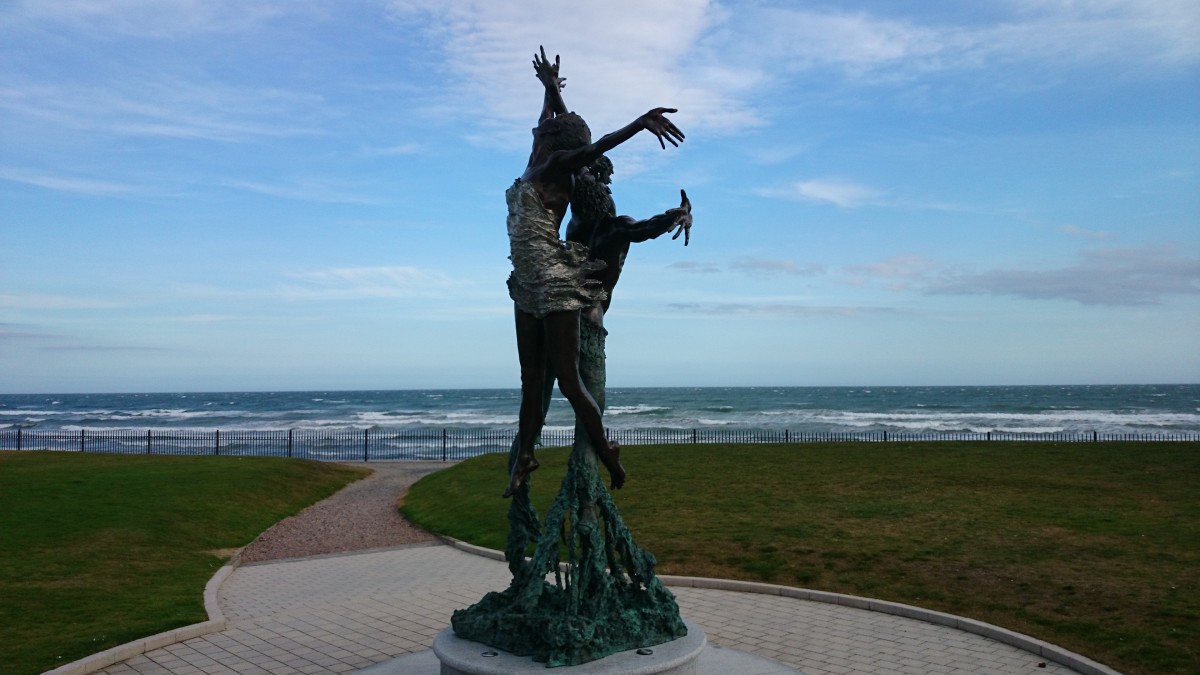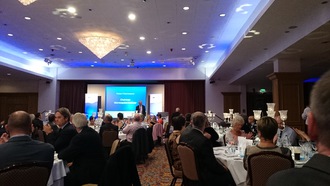Beckett Rankine are associate members of the British Ports Association and Tim Beckett represented the firm at this year’s Annual BPA Conference which was held at Slieve Donard hotel in Newcastle, County Down. With sponsorship from the nearby port of Warrenpoint, who also arranged a port tour, the two day conference was the BPA’s best ever with over 200 delegates attending. Highlights of the conference included an excellent presentation on Port Forecasting by our colleague Chris Fisher of Fisher Associates and a provocative talk on Autonomous Vessels by Dr Eshan Rajabally of Rolls Royce. Despite scepticism amongst mariners Eshan assured the delegates that there were no technological impediments to having unmanned ships roaming the oceans and many advantages, not least cost savings.
Slieve Donard is on the south side of Dundrum Bay which is famous for being the location where, in 1846, I K Brunel’s SS Great Britain ran aground while on passage from Liverpool to New York; her captain, James Hosken, had mistaken St John’s Point lighthouse, which is to the north of the bay, for the Chicken Rock lighthouse, which is to the south. Remarkably the ship was eventually refloated although it took over a year and huge expense to do so. The Great Britain spent a whole winter on the beach and to protect her from wave damage a rudimentary breakwater was constructed around her from rock and timber. The construction of the breakwater and the ship’s subsequent refloating was devised by and carried out by James Bremner and his son Alexander, both civil engineers.
Autonomous ships, when they eventually arrive, will no doubt minimise the chances for human error to result in strandings such as SS Great Britain’s. Whether this leads to acceptance amongst other seafarers, particularly those in small yachts, remains to be seen.




